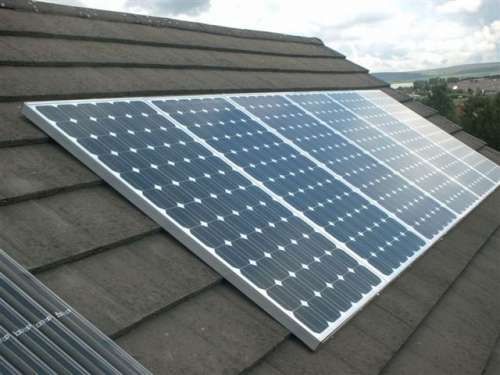
In a speech about the UK’s need for an industrial policy, the CBI’s Director-General labelled the Government’s unexpected decision last week to cut solar feed-in tariffs (FITs) - even before the consultation period has ended - "the latest in a string of Government own goals".
Addressing the CBI East Midlands Annual Dinner John Cridland, CBI Director-General will say that the low-carbon sector - which has grown across the world throughout the recession - risks being derailed in the UK by unexpected changes, with the loss of thousands of jobs.
Commenting on the Government’s industrial policy, Mr Cridland will say:
"The Business Secretary used a speech last week to start a discussion on a new industrial policy. As he said, "it’s still a work in progress, and there is substantial room to develop it in scope and scale in future". We need to help Vince Cable to help us.
"A new understanding needs to run through all of government. Industrial policy might be based at the Department for Business, but all departments need to share the same ambition. They all need to work to join up policies and create a system that’s more than the sum of its parts.
"Competitiveness needs to be policy priority number one. We need to give investors confidence to put their money into growth here not abroad."
On the decision to cut solar FITs, Mr Cridland will say:
"Take the low-carbon sector, which has been growing across the world throughout the recession. We need to expand our share.
"But last week the Government announced a dramatic cut in the solar feed-in tariff. A reduction was already on the cards from April 1, but this will now come in by mid-December - before the consultation has even ended.
"This is the latest in a string of government own goals, following the Carbon Reduction Commitment becoming a pure revenue-raiser and the North Sea oil and gas tax.
"As you all know, moving the goal posts doesn’t just destroy projects and jobs, it creates a mood of uncertainty that puts off investors and they wonder what’s coming next.
"Some companies have invested heavily in solar photovoltaic systems, and in the supply chains needed to install them. That commitment has been undermined by the feed-in tariff decision - and so industry trust and confidence in the government has evaporated. This bodes poorly for investment in future initiatives.
"A new industrial policy needs to recognise the real-time costs of these decisions, and should set out a clear path that investors understand and can believe in."
Turning to the Government’s ability to use its buying power to stimulate innovation, Mr Cridland will say:
"Another critical aspect of any new industrial policy has to be procurement. Our government’s the largest single consumer of goods and services in the UK. It can use this buying power to help shape a competitive future for business.
"Government departments and agencies need to look beyond lowest price and consider whole-life value and how business is involved throughout the process.
"Take defence. It must be possible to achieve the twin aims of getting our servicemen and women the best kit, and gaining some advantage for our domestic industries. But we’ve gone backwards since the defence review.
"Look at how the Americans leverage their spend. The Defense Advanced Research Projects Agency doesn’t just buy things. It has a mission to prevent technological surprise and create technological surprise for its enemies. Contractors have been given the freedom and confidence to innovate.
"Our government should be looking to get more from suppliers by setting out its mission."
